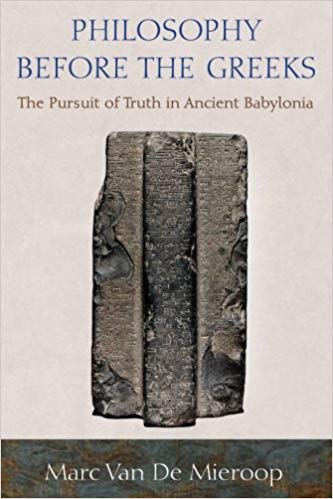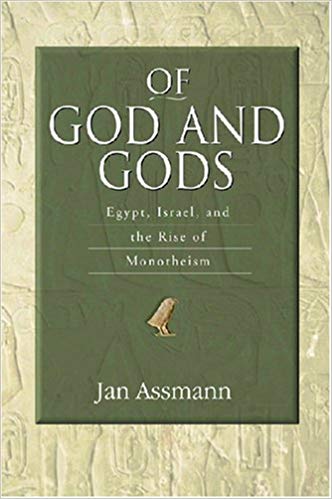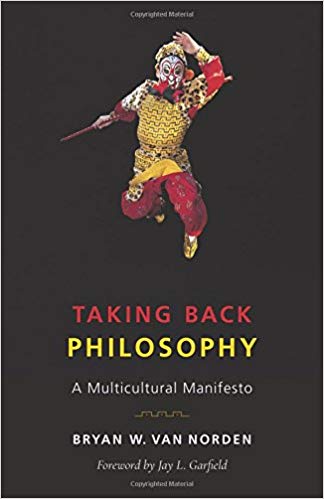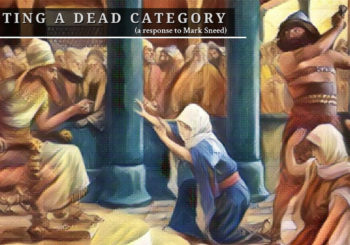Books on Other Non-Western Ancient Philosophies
How They Connect with Hebraic Thought
A philosophy of the biblical literature remains almost non-existent in most university-level philosophy departments today.
Dismay over such Western parochialism presumably led to a recent New York Times opinion piece titled “If Philosophy Won’t Diversify, Let’s Call It What It Really Is,” which later became the book Taking Back Philosophy.1 Jay L. Garfield and Bryan W. Van Norden, “If Philosophy Won’t Diversify, Let’s Call It What It Really Is,” The Opinion Pages (The New York Times), May 11, 2016, http://www.nytimes.com/2016/05/11/opinion/if-philosophy-wont-diversify-lets-call-it-what-it-really-is.html. The authors’ suggestion was to rename most philosophy departments as “Department of European and American Philosophy” due to their obvious lack of diversity. The response to this opinion piece generated a book-length manifesto to tackle what they saw as “pseudo-argumentation that is typically used to dismiss philosophy that is outside the Anglo-American canon.”2 Bryan W. Van Norden, Taking Back Philosophy: A Multicultural Manifesto (New York: Columbia University Press, 2017), 16.
Van De Mieroop, Assmann, and Van Norden make a case that there are rich speculative worlds in the ancient literatures of Egypt and across all of Asia (East, Central, and West Asia). Their arguments, in principle, extend to the notion of Hebraic thought as a Hebrew philosophy.
Marc Van De Mieroop, Philosophy before the Greeks: The Pursuit of Truth in Ancient Babylonia (Princeton University Press)

“There is a growing recognition that philosophy isn’t unique to the West, that it didn’t begin only with the classical Greeks, and that Greek philosophy was influenced by Near Eastern traditions. Yet even today there is a widespread assumption that what came before the Greeks was “before philosophy.” In Philosophy before the Greeks, Marc Van De Mieroop, an acclaimed historian of the ancient Near East, presents a groundbreaking argument that, for three millennia before the Greeks, one Near Eastern people had a rich and sophisticated tradition of philosophy fully worthy of the name.
In the first century BC, the Greek historian Diodorus of Sicily praised the Babylonians for their devotion to philosophy. Showing the justice of Diodorus’s comment, this is the first book to argue that there were Babylonian philosophers and that they studied knowledge systematically using a coherent system of logic rooted in the practices of cuneiform script. Van De Mieroop uncovers Babylonian approaches to knowledge in three areas: the study of language, which in its analysis of the written word formed the basis of all logic; the art of divination, which interpreted communications between gods and humans; and the rules of law, which confirmed that royal justice was founded on truth.
The result is an innovative intellectual history of the ancient Near Eastern world during the many centuries in which Babylonian philosophers inspired scholars throughout the region–until the first millennium BC, when the breakdown of this cosmopolitan system enabled others, including the Greeks, to develop alternative methods of philosophical reasoning.”
Author
Marc Van De Mieroop, professor, is a specialist of the history of the ancient Near East from the beginning of writing to the age of Alexander of Macedon. Besides teaching at Columbia University, he has taught at the University of Oxford and at Yale University. He is the Director of Columbia’s Center for the Ancient Mediterranean and Founding Editor of the Journal of Ancient Near Eastern History.
Jan Assmann, Of God and Gods: Egypt, Israel, and the Rise of Monotheism (University of Wisconsin Press)

For thousands of years, our world has been shaped by biblical monotheism. But its hallmark—a distinction between one true God and many false gods—was once a new and radical idea. Of God and Gods explores the revolutionary newness of biblical theology against a background of the polytheism that was once so commonplace.
Jan Assmann, one of the most distinguished scholars of ancient Egypt working today, traces the concept of a true religion back to its earliest beginnings in Egypt and describes how this new idea took shape in the context of the older polytheistic world that it rejected. He offers readers a deepened understanding of Egyptian polytheism and elaborates on his concept of the “Mosaic distinction,” which conceives an exclusive and emphatic Truth that sets religion apart from beliefs shunned as superstition, paganism, or heresy.
Without a theory of polytheism, Assmann contends, any adequate understanding of monotheism is impossible.
Author
Jan Assmann is professor emeritus of Egyptology at the University of Heidelberg. He is also Honorary Professor of Cultural Theory at Konstanz University and had been a visiting professor at the École des Hautes Études en Sciences Sociales in Paris, Yale University, the University of Chicago, and the Hebrew University, Jerusalem.
Brian W. Van Norden, Taking Back Philosophy: A Multicultural Manifesto (Columbia University Press)

Are American colleges and universities failing their students by refusing to teach the philosophical traditions of China, India, Africa, and other non-Western cultures? This biting and provocative critique of American higher education says yes. Even though we live in an increasingly multicultural world, most philosophy departments stubbornly insist that only Western philosophy is real philosophy and denigrate everything outside the European canon. In Taking Back Philosophy, Bryan W. Van Norden lambastes academic philosophy for its Eurocentrism, insularity, and complicity with nationalism and issues a ringing call to make our educational institutions live up to their cosmopolitan ideals.
In a cheeky, agenda-setting, and controversial style, Van Norden, an expert in Chinese philosophy, proposes an inclusive, multicultural approach to philosophical inquiry. He showcases several accessible examples of how Western and Asian thinkers can be brought into productive dialogue, demonstrating that philosophy only becomes deeper as it becomes increasingly diverse and pluralistic. Taking Back Philosophy is at once a manifesto for multicultural education, an accessible introduction to Confucian and Buddhist philosophy, a critique of the ethnocentrism and anti-intellectualism characteristic of much contemporary American politics, a defense of the value of philosophy and a liberal arts education, and a call to return to the search for the good life that defined philosophy for Confucius, Socrates, and the Buddha. Building on a popular New York Times opinion piece that suggested any philosophy department that fails to teach non-Western philosophy should be renamed a “Department of European and American Philosophy,” this book will challenge any student or scholar of philosophy to reconsider what constitutes the love of wisdom.
Author
Bryan W. Van Norden is chair professor in the School of Philosophy at Wuhan University, Kwan Im Thong Hood Cho Temple Professor at Yale-NUS College in Singapore, and professor of philosophy at Vassar College. His books include Virtue Ethics and Consequentialism in Early Chinese Philosophy (2007) and Introduction to Classical Chinese Philosophy (2011).




